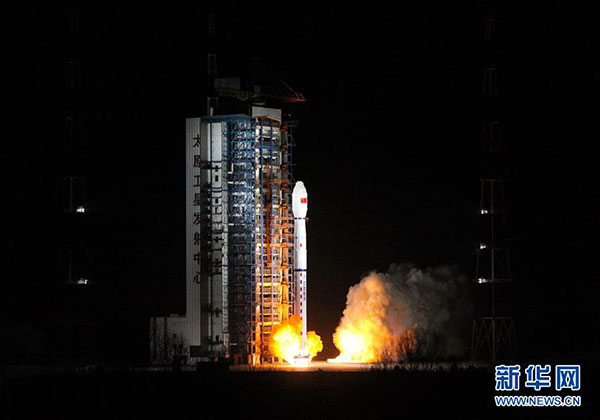Smart meteorology can help better manage weather-related risks
By Liu Yaming | China Daily | Updated: 2018-03-23 07:08

Friday is the 58th World Meteorological Day. It has the theme "Weather-Ready, Climate-Smart", which reflects meteorology's key role in mitigating the negative effects of extreme weather and climate events, and protecting lives and property.
The theme also shows that the World Meteorological Organization and its members are committed to supporting the global agenda on sustainable development, climate change adaptation and disaster risk reduction.
The World Meteorological Office and National Meteorological Services are responsible for not only providing daily weather forecasts but also long-term climate predictions that help society to be weather-ready and climate-smart, which is vital for boosting the resilience of human society.
The development of the atmospheric science is a process of continuously making breakthroughs in the construction of meteorological monitoring and early warning systems-from land-based meteorological stations to meteorological satellites, from hand-drawn weather maps to computer modeling forecasting. Every step forward has enhanced our ability to cope with extreme weather and climate events.
The application of advanced information technology has transformed not only people's lives, but also meteorology. Smart meteorology, which makes full use of cloud computing, the internet of things, the mobile internet, big data and artificial intelligence, has evolved into an innovative, adaptable, self-learning system. Prompting the development of smart meteorology will make future meteorological services more accurate and personalized.
The extensive application of information technology in meteorology will further enhance meteorological science, and improve the work and services of meteorological departments.
The China Meteorological Administration attaches great importance to the development of smart meteorology and seeks to constantly improve its weather and climate monitoring and early warning capabilities.
China has nine Fengyun meteorological satellites in orbit, and a network of 190 weather radars. All Chinese cities and 96.5 percent towns are covered by meteorological stations, ensuing the accuracy and timeliness of national and local weather forecasts.
The emergency weather early warning information disclosure system, which collects 76 kinds of early warning information from 16 departments, covers more than 90 percent of the population, which has played an important role in minimizing the losses incurred by meteorological disasters.
China is constructing a smart public meteorological service system to satisfy people's needs for more customized, professional and accurate meteorological services. Also, poverty alleviation, pollution treatment and control, and the handling of emergency incidents necessitate the guarantee of smart meteorology.
The construction of a community of shared future for humanity and the global efforts to guard against extreme weather, climate and water events also call for the support of smart meteorology.
The China Meteorological Administration works round the clock to monitor the weather and climate to reduce risks, enhance climate change mititigation and adaptability and help promote sustainable development.
Meteorological observations are expected to provide all-weather and seamless data to forecast and deal with extreme weather events. The China Meteorological Administration will spare no efforts in keeping pace with the development of meteorological science, as the application of new technology, artificial intelligence and big data in meteorology will help produce more accurate weather forecasts.
The meteorological departments should actively cooperate with the ocean, hydrology, earthquake and the other disaster relief and emergency response departments to share information and establish an effective pre-warning service and improve the response to extreme weather events.
The smart meteorological service providers have every reason to take the initiative in offering smart services through various kinds of media platforms to satisfy the increasingly personalized needs of not only individuals, but also organizations and industries.
Last but not least, the meteorological departments should pay more attention to disseminating meteorological information, so as to raise people' awareness and use of smart meteorological services.
The author is the head of the China Meteorological Administration.
























